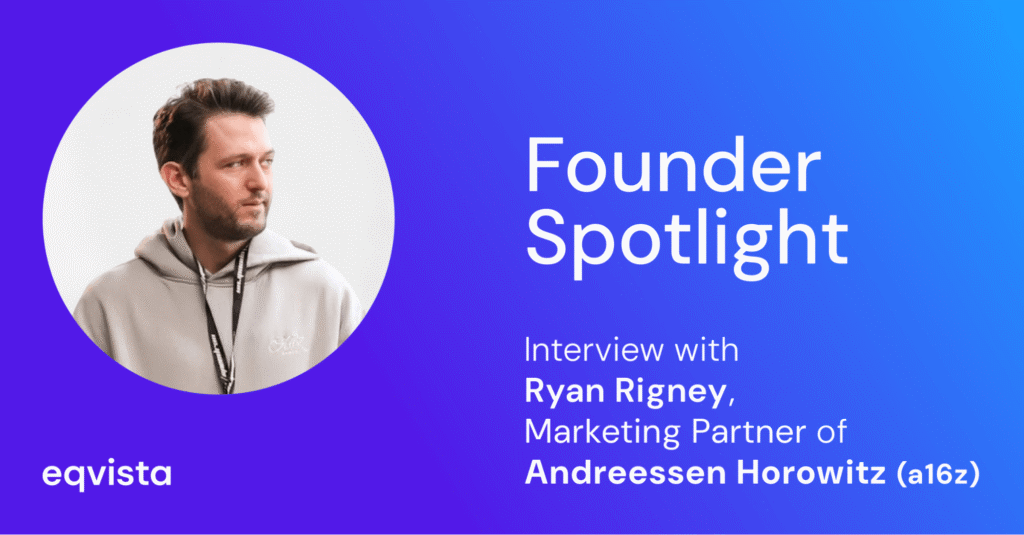Inside a16z Speedrun: How This Accelerator Is Rewriting the Rules for Early-Stage Startups
In the fast-moving world of startup accelerators, a16z Speedrun has carved out a distinctive position—combining the resources of one of Silicon Valley’s most influential venture capital firms with an intensive, cohort-based approach to early-stage company building. But what actually happens during those 12 weeks? And what makes this program different from the dozens of other accelerators vying for founders’ attention?
We connected with Ryan Rigney, Marketing Partner at a16z Speedrun, to get answers. With a decade of experience marketing some of gaming’s biggest hits—including League of Legends, PUBG, and Apex Legends—Ryan now helps over 100 startups each year navigate everything from community building to product launches and Demo Day pitches.
In this interview, Ryan pulls back the curtain on what the Speedrun program really offers founders, why they’ve chosen to keep it in-person despite the costs, and what he’s learned from watching hundreds of early-stage companies navigate today’s rapidly evolving tech landscape—especially in AI, where the rules are being written in real time.
Whether you’re a founder considering applying to an accelerator or simply curious about how top-tier programs operate, Ryan’s insights offer a rare glimpse into what it takes to build something valuable from the ground up.

Ryan, can you briefly describe your role as Marketing Partner at a16z speedrun and your background in marketing?
I help the founders in each cohort of speedrun with their marketing plans (whether that’s building community, running ads, pitching to media, or more general advice). I also write the speedrun newsletter and do a bunch of other comms and content marketing for the program.
Before joining a16z I spent about a decade doing comms and marketing on video games that reached many millions of players, including League of Legends, PUBG, Teamfight Tactics, Apex Legends, and Omega Strikers.
What inspired a16z to create the speedrun program as an accelerator format?
The initial version of the program was focused on gaming, so it was sort of the early-stage complement to the A16Z GAMES fund’s seed and later stage strategy. Over time, the program evolved into a16z speedrun, expanding to include a broader range of early-stage startups within its focus areas.
We think there’s something really powerful about the cohort-based model for early-stage startup programs. It lets us give founders really concentrated support and access to resources when they most need it, and there’s so much value in building alongside the community of other founders live and in-person.
What is the a16z speedrun program, and how does it differentiate from traditional accelerators?
There are a few big differences for founders. One is the hands-on, high-touch support you get from our team: we’ve got a massive talent network to help you hire, staff dedicated to helping you sell and go to market, a marketing team that will work with you to develop your brand and help you launch your product. You also get access to the broader a16z network, which includes thousands of companies. It’s a lot of small advantages that help startups beyond the 12-week stretch of the program.
We do all of this at scale, with every one of the 100+ speedrun companies who join the program each year, by getting to know the founders and their businesses deeply.
Your program runs for 12 weeks instead of the usual 3-4 months. Why this timeline, and how do you make sure founders get real value in less time?
The actual weekly program is 12 weeks, because it’s a very focused sprint from kickoff to Demo Day—and we’re happy with how the pacing has felt so far. That said, the support from our team starts from the moment we sign the deal and continues indefinitely afterward. We want our partnerships with founders to be lifelong. In addition to support from our team, joining the program unlocks an incredible community of founders who all support each other.
After the 12 weeks are over, how do you stay involved with companies? What does ongoing support look like?
It really just depends on what founders need. There are the obvious things like consultations and help opening doors or making connections, of course. One thing we’re starting to see more value in are events that include speedrun alumni, like our in-person AI Faires, where speedrun teams from past and current cohorts get to pitch to hundreds of buyers at some of the world’s biggest firms. We do anything we can do to support founders with traction.
The continuing access to the community is huge, as well. We have an alumni Slack channel, and founders in the network have ongoing access to alumni events, alumni angel investments, our referral network, etc.

Running an in-person program costs more than doing it online. What makes the face-to-face experience worth it?
Oh, there’s no comparison in terms of the value you get out of face-to-face. If you ask founders what they love most about the program they’ll often say it’s the quality of the relationships with the other founders. Real bonds don’t get built over Zoom calls.
What specific things do you teach founders during the program? How do you know if they’re actually learning and improving?
We have programs about just about every aspect of starting and running a startup: hiring, firing, selling, building, pitching, you name it. A lot of it is in the service of “getting teams ready to pitch on Demo Day.” For different founders that means different things. Some come in with a strong product that already has traction, and others are earlier. But everybody leaves with the ability to walk on stage and—in only two minutes—pitch their startup in a compelling way in front of an audience of a thousand real people.
Who is the ideal founder or startup for the speedrun program? What qualities or selection criteria do you prioritize, and are there particular technologies or market sectors you focus on?
The ideal founder is someone with grit, with obsessive focus and passion for the thing they’re building, and with hard-won knowledge that only they possess about the space they’re building in. In terms of selection criteria, there are a few things that make us more keen to move an applicant to the interview stage: previous founding experience, a great cofounder, and real traction with customers are some of the strongest.
If you’re a great founder with a compelling pitch for an early stage startup, we’re interested.
What kind of investment and resources do startups receive during speedrun? Beyond capital, what types of mentorships, network access, or operational support do founders get?
Founders get $5m in credits, plus dedicated advisors to guide them through every partnership, sales, and go-to-market, including crafting their business model and pricing. You get access to a very large (and rapidly growing) alumni network, as well as a16z’s network of executives and decision-makers at 2,000+ companies.
With new technologies like AI changing so fast, how do you help founders build in areas where the old rules might not apply?
We’re all figuring it out together! It does help that we’re getting to see over 100 early stage startups each year building in AI. Part of the benefits for founders joining speedrun is that you get to see all of these other founders going through the same process and struggle you are. They tend to discover the “new rules” pretty quickly in that environment.
What are some notable successes or outcomes from previous speedrun cohorts?
We love to cover our alumni in our newsletter. We did a piece recently featuring Fundamental Research Labs’s Nico Christie, SweatPals’s Mandi Zhou, Hedra’s Michael Lingelbach, and Sitch’s Nandini Mullaji. Each of these founders are building thriving, growing companies and have grown into respected leaders in their space.
Although speedrun started just a couple of years ago, we’re already starting to see more and more companies breaking through.
How do you measure success beyond just which companies raise the most money or get the highest valuations?
High valuations aren’t the measure of success, and can harm founders in some circumstances. We want to see teams building something valuable, as measured by getting traction with customers that stick around. If you can do that while staying “default alive,” you’re playing the startup game correctly.
What’s the biggest misunderstanding founders have about what accelerators can do for them?
Investors will never know your company as well as you do, and they probably don’t know your market or your customers as well as you do. The a16z speedrun program can give you resources, connections, and advantages, but at the end of the day your success will be determined by what you build and the market you build it for.
If you could give just one piece of advice to help founders know if they’re ready for speedrun, what would it be?
Just start building. Learn something about a market. Serve some customers. Get some traction. And don’t be afraid to apply even if you think you’re too early. We have a very surprising number of founders who get turned down for one cohort but then get accepted into a later one. There’s no downside to applying.
How can interested founders learn more or get in touch with the speedrun team?
Reach out to us any time at sr-team@a16z.com and you can learn more and apply for the program at our website.
